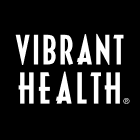
Health
Weight Training For The First Time? Eat These Foods to Boost Lean Muscle Growth
August
14,
2019
When most people think of weight training, they imagine a buff bodybuilder or a professional athlete training for their next big competition. But, you don‚t have to be a career athlete to experience the wellness benefits of weight training. This high-resistance fitness activity can offer plenty of health advantages like:
‚óè Lean muscle growth and maintenance
‚óè Visceral (belly) fat loss and weight control
‚óè Reduced risk for fitness-related injuries
‚óè Improved cardiovascular health
‚óè Better balance
You can reap these benefits by committing to a consistent weight training routine under the supervision of a personal trainer. And, like with any results-driven fitness goal, it‚s a good idea to adjust your diet to maximize your results.
When you begin weight training, it‚s important to increase your daily caloric intake and add plenty of nutrient-rich foods to your diet. If you‚ve recently added weight training to your fitness routine, here are five foods you should start eating today to boost lean muscle growth and increase your strength:
Matcha
One of the biggest challenges for first-time weight trainers is building endurance. Matcha, a plant-based powder derived from the green tea plant, has been shown to increase bodily energy levels and endurance. The caffeine in matcha is released steadily over an extended period which keeps you energized during and after your weight training session. Matcha also contains high levels of epigallocatechin gallate, also known as EGCG. This heart-healthy antioxidant can aid in muscle recovery by reducing inflammation, so it‚s a good idea to enjoy amatcha smoothie before or after your next weight lifting session!Eggs
This staple breakfast side dish supplies the body with a variety of high-quality nutrients. Not only do eggs contain high levels of high-quality protein, but they‚re also packed with an amino acid known as leucine. This amino acid promotes healthy muscle growth and improves muscle recovery. In addition to proteins and amino acids, eggs also offer the body plenty of B vitamins. These are vital for helping your body produce plenty of energy, which you‚ll definitely need if you‚re weight training for the first time!Almonds
If you‚re looking for a healthy snack option that can maximize your weight training results, try almonds. In addition to supplying the muscles with plenty of protein, almonds are also great for bone health. These protein-rich nuts contain high levels of magnesium and phosphorus, which aid in calcium absorption and promote healthy bone growth.Salmon
A single serving of salmon can supply the body with up to 17 grams of protein and 2 grams of omega-3 fatty acids.Studies have shown that omega-3s can aid in the muscle recovery process by reducing bodily inflammation. If you‚re a first-time weight trainer, then you‚ll need omega-3s to reduce soreness as your body adjusts to your new fitness routine.Peas
Peas aren‚t always a crowd favorite, but they‚re great for your physical health. With up to 10 grams per serving, peas are an excellent source of plant-based protein. Pea proteins have been shown to increase muscle thickness and gains especially for those who engage in some form of resistance training. If you don‚t like the taste of peas, there are plenty of delicious pea protein powders that you can use to make delicious protein smoothies!Sources:
B Vitamins. MedlinePlus. https://medlineplus.gov/bvitamins.html. Published May 30, 2019. Accessed August 12, 2019. Clemson L, Singh MA, Bundy A, Cumming RG. Integration of balance and strength training into daily life activity to reduce rate of falls in older people (the LiFE study): randomised parallel trial. BMJ. 2012;345(aug15 2). doi:10.1136/bmj.e5528. Layman DK, Rodriguez NR. Egg Protein as a Source of Power, Strength, and Energy. Nutrition Today. 2009;44(1):43-48. doi:10.1097/nt.0b013e3181959cb2. Molfino A, Gioia G, Fanelli F, Muscaritoli M. The Role for Dietary Omega-3 Fatty Acids Supplementation in Older Adults.Nutrients.2014;6(10):4058-4072. doi:10.3390/nu6104058. Stearns G. Human Requirement Of Calcium, Phosphorus And Magnesium. Journal of the American Medical Association. 1950;142(7):478. doi:10.1001/jama.1950.72910250002009. Wolfram S. Effects of Green Tea and EGCG on Cardiovascular and Metabolic Health. Journal of the American College of Nutrition. 2007;26(4). doi:10.1080/07315724.2007.10719626. DISCLAIMER: This information is not intended as a substitute for advice provided by a competent health care professional. You should not use this information in diagnosing or treating a health problem. No claim or opinion in this blog is intended to be, nor should be construed to be, medical advice. If you are now taking any drugs, prescribed or not, or have a medical condition, please consult a competent physician who is aware of herb/drug interactions before taking any herbal supplements. The information presented herein has not been evaluated by the FDA or the Department of Health and is not intended to diagnose, prevent, cure, mitigate or treat any disease or illness.


